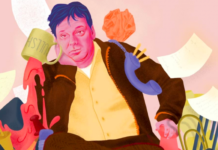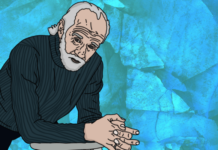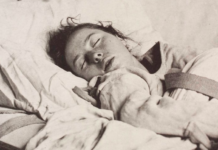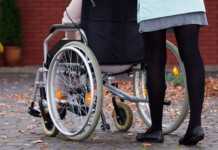Tapering Strips Help People Discontinue Antidepressants
A new study by Peter Groot and Jim van Os has found that tapering strips help people successfully discontinue antidepressant medications.
Traditional South African Healers Use Connection in Suicide Prevention
Study finds that traditional healers in South Africa, whose services are widely used by the country’s population, perform important suicide prevention work.
Can Precision Medicine Work for Depression?
From STAT: The idea of using precision medicine to treat depression is quickly gaining new ground. But many researchers and experts worry that the idea...
Increasing Antidepressant Dose Does Not Improve Outcomes
A systematic review of literature and meta-analysis indicates that there is no clinically or statistically significant effect of antidepressant dose increase after nonresponse to initial treatment.
The Next Deadly Epidemic: Adult ADHD and Stimulants?
I refuse to be one of the doctors that contribute to the next deadly epidemic. I see too many similarities between stimulants and opiates — they’re both strongly addictive, stimulate our pleasure centers, and have long-term dangerous mental and physical effects. And they both “work” in the short term without actually fixing anything.
Treatment-Resistant Depression as a Sign of Unconscious Health
In this video, Dr. Elio Frattaroli describes how biological explanations for "treatment-resistant depression" often ignore the meaning and context of a patient's suffering. He...
The Sound of Madness
From Harper's Magazine: People who hear positive, encouraging voices often seen as spiritual guides or messages and people diagnosed with schizophrenia are usually thought of as...
Differing Depression Diagnostic Tools May Influence Research Findings
The type of diagnostic assessment used in research settings, either fully structured or semi-structured interview, may affect which participants in receive a diagnosis of major depression.
Is Your Job Bullshit? David Graeber on Capitalism’s Busy Work
From In These Times: Over a third of British workers believe their job makes no meaningful contribution to the world. The rising number of people who have...
Hopeless But Not Broken: From George Carlin to Protest Music
From CounterPunch: Although people are often pathologized and shamed for feeling hopeless, hopelessness is sometimes a natural reaction to an oppressive political climate. George Carlin...
Pain Increases Later Risk for Anxiety and Depression
Experiencing moderate to severe pain, or having at least moderate life interference from pain, doubles risk for anxiety or depression.
This Type of Exercise May Help Relieve Depression
From TIME: A new study has found that resistance exercise training, such as weightlifting and strength training, is associated with a significant reduction in depressive...
Cultural Confusion: The Shifting Line Between Sane and “Unsane”
From STAT: An unprecedented number of Americans have been diagnosed with a mental, behavioral, or emotional disorder. Does this represent an increase in psychological distress...
Distinguishing Dissociative Disorders from Psychotic Disorders: Compounding Alienation
If a person recognizes the “alien” parts of themselves as being parts of themselves, they are likely to be seen as having PTSD or a dissociative disorder. If they see the “alien” parts of themselves as being literally aliens, or demons, they will likely be diagnosed as psychotic. But these experiences are really on a spectrum.
Minority Groups Found Less Likely to Get Mental Health Care
From California Healthline: Although people of color are much more likely to suffer from severe psychological distress, they are less likely to receive mental health...
The Shamanic View of Mental Illness
From UPLIFT: In the shamanic view, emotional distress and psychosis signal a spiritual awakening or emergence, not a pathology. Western cultures can learn a great...
The Enduring Myth of the Mad Genius
From Wellcome Collection: It has long been assumed that great writers and artists must be touched by madness. However, no link between artistic talent and...
Temperamentally Blessed
From Aeon: The finding that only one in five people avoid any kind of mental health problems or psychiatric diagnoses through their lives has prompted...
What About Fat Voices? Our Experience With Fat Invisibility
In this piece for Resilient Fat Goddess, psychologist and fat activist Rachel Millner critiques the pervasiveness of fatphobia, sizeism, and weight bias within the eating...
Psych Ward Ramblings
In this piece for Medium, activist and survivor Louisa J. Harvey describes the experience of being locked in a psychiatric institution on an involuntary hold.
"This is not...
The Never-Ending Misuse of Antipsychotics in Nursing Homes
From Health Affairs: Although the problem of antipsychotic misuse in nursing homes has been raised to policymakers numerous times over the past six decades, the...
What Care for the Criminally Insane Can Teach Us
In this piece for The Pew Charitable Trusts, Michael Ollove reports on Oregon's model of intense care and supervision for those found guilty except for insanity.
"Oregon’s model...
A Commentary on the Finnish Analysis of Outcomes of First Episode Schizophrenia
There are a number of well-recognised problems with this sort of study and we should be very cautious about accepting its conclusions at face value. The main problem is that it is an ‘observational’ study, not a randomised controlled trial, and these analyses can be seriously misleading.
20-year Outcomes for First-episode Psychosis: Impact of Neuroleptic Drug Discontinuation
The authors conclude that the risk of treatment failure or relapse after discontinuation of antipsychotics does not decrease during the first eight years of illness, and that long-term antipsychotic treatment is associated with increased survival. This is a sobering finding and the paper warrants careful review.
New Meta-Analysis: Mindfulness Interventions Effective for Psychiatric Disorders
A meta-analysis of mindfulness-based interventions shows efficacy for treating depression, physical pain, smoking, and addictive disorders.

































